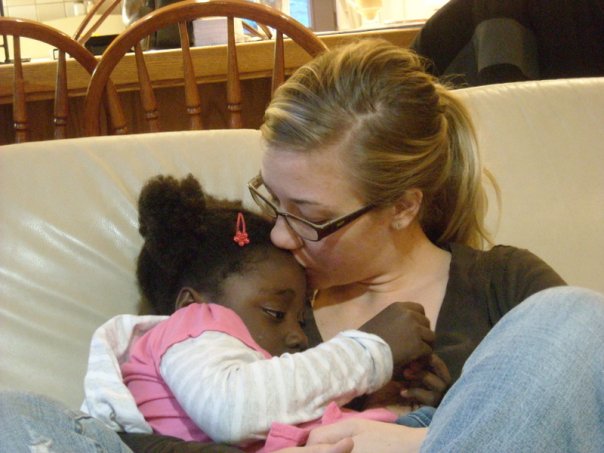I met Beta when she was four, laughing in the middle of a floor puzzle with eight or so orphans around her. It was July 2006, and it was my first trip to Port-au-Prince. I was 18, scared and hoping to make a difference. She was one of 35 orphans I worked with for the summer while I volunteered with Three Angel’s Children’s Relief (TACR), a non-government organization in Haiti.
Beta was one of only a few children without a pending adoption. She attached herself to the staff instead and, on lonely days, when I wondered why I was in Port-au-Prince, I looked to Beta’s clinging to me for comfort.
Beta’s mother left her at TACR when she was five months old and smaller than a soup ladle. Her name, Betany, is Haitian Creole for our version of the name Bethany, because there is no “th” sound in her language.
Beta’s first adoption was finalized when she was a toddler. But three years passed, and her family never showed up to take her home. They left her bound in a series of lies and red tape, waiting for the government to declare her abandoned and freed up for adoption.
I never expected my family to become involved with Beta. Two weeks before my flight home, I began to furiously write to my parents about Spendy, a two-year-old with cigarette burns and an arm scarred from falling into a street fire. I woke my parents up the night they picked me up, sobbing and begging them to take him. I cried again the next morning when they said they would.
Four months into his adoption, a battle ensued between my parents and Spendy’s birth mother, who began to show interest in the son she had brought to TACR starving and bleeding a year and a half before. She took him back two months later, and my faith in a God of miracles began to wane. Meanwhile, the president of TACR asked my parents if they would take Beta once she was free. They agreed, though they were apprehensive after Spendy.
In a January 2010 blog entry on WorldMag.com, Andree Seu described Paul the Apostle as a man who walked with “eager expectation and hope,” expected his prayers to be answered more often than not and “anticipated victory every place he set his foot.” Seu wrote that she often lived without such hope and anticipation.
Like Seu, I have spent most of my life putting one foot in front of the other without expectation of victory. When months went by without word of Beta, my feelings toward her went into a comatose state. I threw in my own mental towel when a year passed without word of her.
Seu pointed out in her blog that Christ provides ample reason to walk with hope and eager expectation. I didn’t know it in January, but hers was a divinely appointed message to me.
I cried again about adoption in our family three weeks ago, just days after the earthquake hit Haiti. These were quiet tears – the kind I suppose are only shared by those who live to experience true miracles. They came when my mother called from Florida, asking if I wanted to talk to my new sister – one of less than 600 orphans let go from Haiti.
I flew home to see her the next week. We laughed, danced and giggled for five days. I waited until the day of my flight to tell Beta I was leaving. Her countenance changed when I said it, and she cried silently for hours. I left afraid that she would think that I was leaving for good like her first family. I told her I would be back, but knew that she had every reason to doubt my word.
Someday, I want Beta to know how many complete strangers wrote to me, a woman of skimpy faith, to tell me how our story had rekindled their belief in a God of miracles. And I want her to know that, for my part, I believed in the hope that was promised to me without question.
It has been two weeks since I was home, and Beta still asks when I’m coming back. I know by the way she talks that I was wrong to think she would doubt I would come back because she had been left before. I know that when I do show up, she won’t be surprised to see me. She will have been waiting -– expectant, full of hope and unsurprised by victory.







